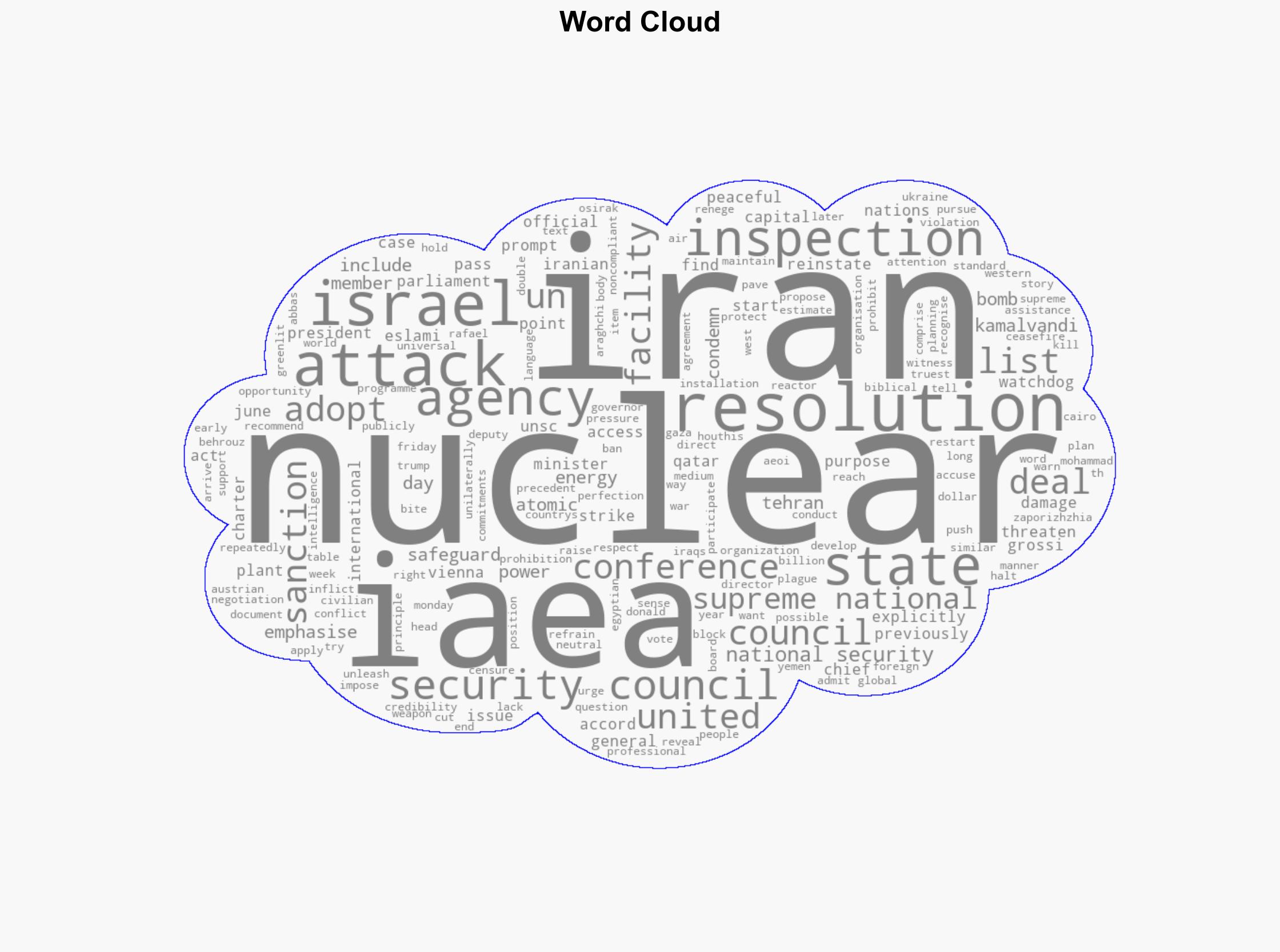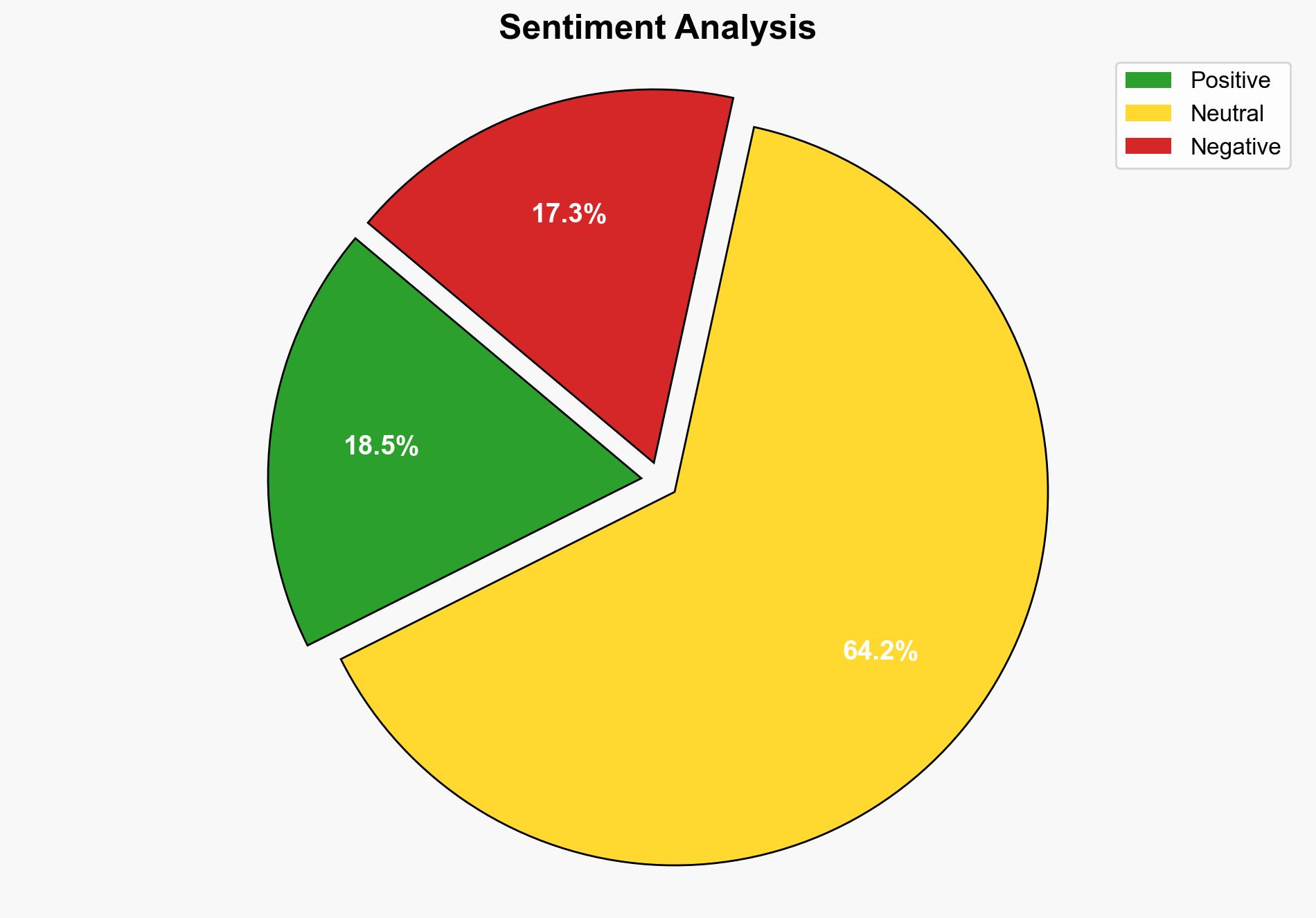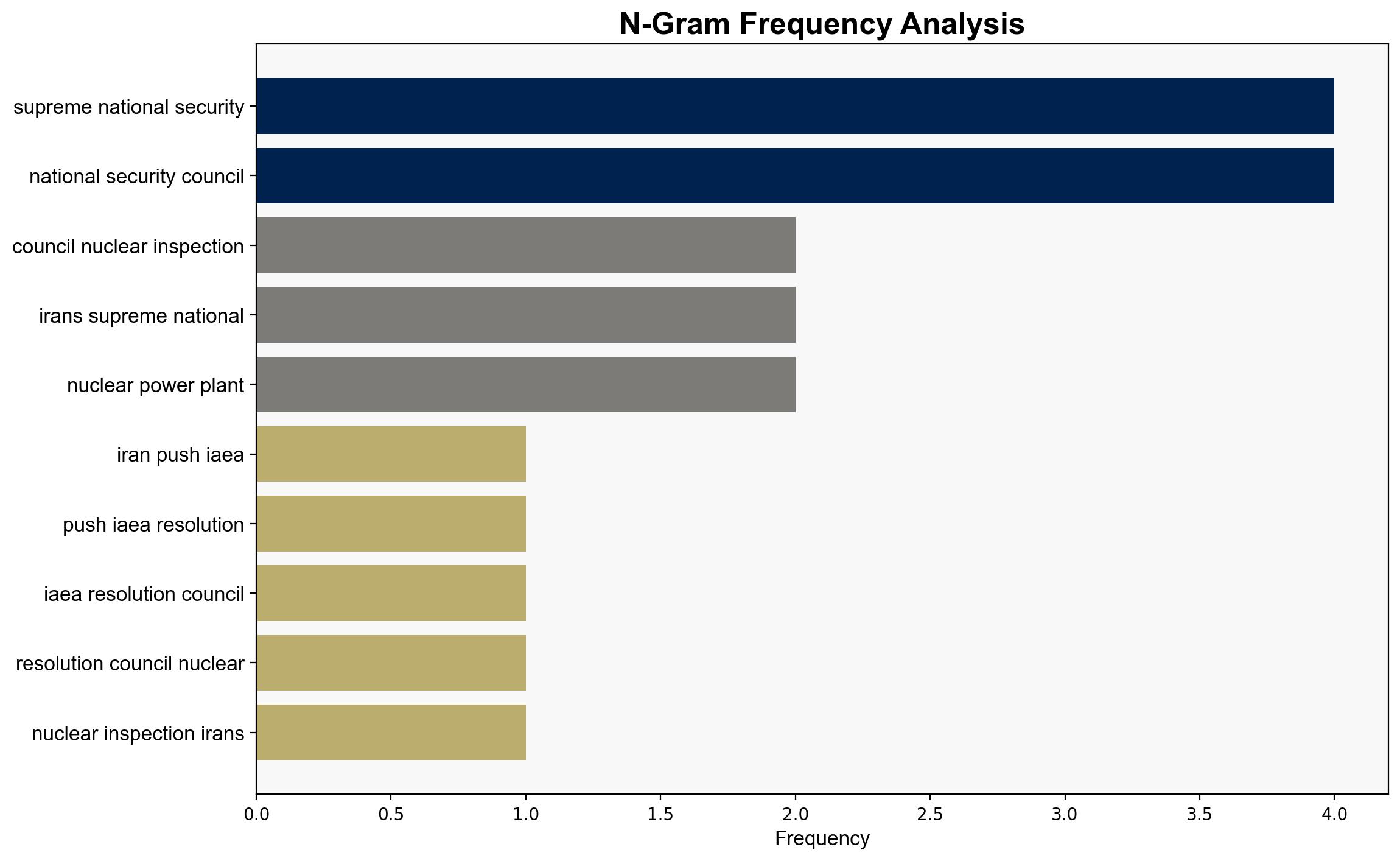Iran pushes for IAEA resolution as top council backs nuclear inspections – Al Jazeera English
Published on: 2025-09-15
Intelligence Report: Iran pushes for IAEA resolution as top council backs nuclear inspections – Al Jazeera English
1. BLUF (Bottom Line Up Front)
Iran’s push for an IAEA resolution to prohibit attacks on nuclear installations is a strategic move to safeguard its nuclear facilities amid heightened tensions with the West and Israel. The most supported hypothesis is that Iran is seeking to legitimize its nuclear program while deterring potential military actions against its facilities. Confidence Level: Moderate. Recommended action includes diplomatic engagement to address Iran’s security concerns while ensuring compliance with international nuclear agreements.
2. Competing Hypotheses
1. **Hypothesis A**: Iran is genuinely committed to nuclear transparency and seeks to protect its nuclear facilities from potential military strikes by legitimizing its program through international resolutions.
2. **Hypothesis B**: Iran’s push for the resolution is a strategic maneuver to gain international sympathy and leverage, while continuing to advance its nuclear capabilities covertly.
Using ACH 2.0, Hypothesis A is better supported due to Iran’s public statements and actions aligning with international norms, such as participating in the IAEA conference and advocating for nuclear facility protection. However, Hypothesis B cannot be dismissed given Iran’s historical non-compliance and the geopolitical context.
3. Key Assumptions and Red Flags
– **Assumptions**: It is assumed that Iran’s nuclear program is primarily for peaceful purposes, as claimed. The assumption that international resolutions will effectively deter military actions is also present.
– **Red Flags**: Iran’s history of non-compliance with nuclear agreements and the potential for covert nuclear advancement. The lack of explicit support from key international players for Iran’s resolution raises questions about its feasibility.
4. Implications and Strategic Risks
– **Geopolitical Risks**: Failure to address Iran’s security concerns could escalate regional tensions, particularly with Israel and the United States.
– **Economic Risks**: Continued sanctions and potential military conflicts could further destabilize Iran’s economy and regional trade.
– **Cyber and Psychological Dimensions**: Increased cyber threats and propaganda efforts could emerge as Iran seeks to influence international opinion and deter aggression.
5. Recommendations and Outlook
- Engage in multilateral diplomatic efforts to address Iran’s security concerns and ensure compliance with nuclear agreements.
- Monitor Iran’s nuclear activities closely for any signs of non-compliance or covert advancements.
- Scenario Projections:
- Best Case: Successful diplomatic resolution leads to reduced tensions and enhanced regional stability.
- Worst Case: Military conflict arises from unresolved tensions, leading to significant regional destabilization.
- Most Likely: Ongoing diplomatic negotiations with intermittent tensions and sanctions.
6. Key Individuals and Entities
– Mohammad Eslami, head of the Atomic Energy Organization of Iran
– Rafael Grossi, Director of the IAEA
– Behrouz Kamalvandi, Iran’s Deputy Nuclear Chief
– Abbas Araghchi, Iran’s Foreign Minister
7. Thematic Tags
national security threats, nuclear non-proliferation, regional stability, diplomatic negotiations




